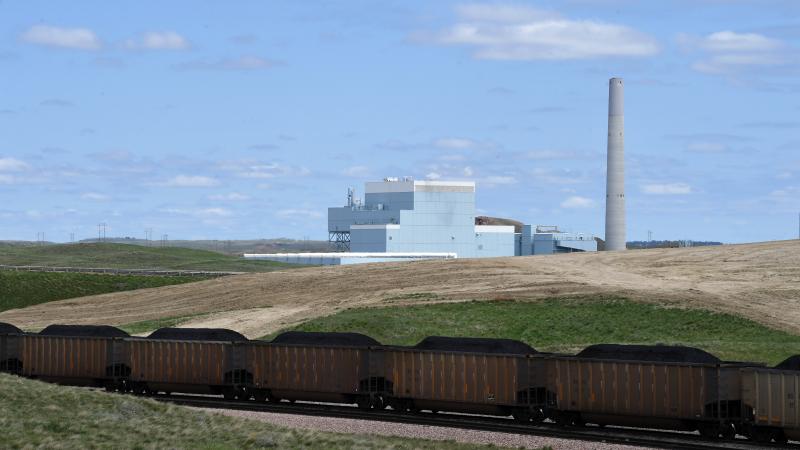Year in Review: Electric vehicles, components an emerging industry
A March report from national nonpartisan nonprofit group E2 presented in conjunction with the Cleantech Summit in Chapel Hill said North Carolina leads the nation in clean energy private-sector investments since passage of the $740 billion Inflation Reduction Act.
Taxpayer money from North Carolinians is a fiscal strength for the push to alternative-powered vehicles.
Electric vehicles and their components remained an emerging industry in 2024.
In fact, a March report from national nonpartisan nonprofit group E2 presented in conjunction with the Cleantech Summit in Chapel Hill said North Carolina leads the nation in clean energy private-sector investments since passage of the $740 billion Inflation Reduction Act.
VinFast
The electric vehicle industry, its mammoth steps into the state notwithstanding, has encountered troubles. And not just with VinFast. At just more than 100,000 zero emission vehicles to more than 8 million combustion engines registered, the public says the vehicles are not preferred.
That's 1 in 80.
Production for VinFast in Moncure, for example, did not happen this past summer. Hailed in late March 2022 for production to start in July 2024, the $2 billion first phase investment grew to a $4 billion electric vehicle factory and the "crown jewel" of the company's global expansion.
The automaker tapped the brakes in April, at a minimum, which followed news from December 2023 when VinFast reduced square footage on the new plant from 995,500 to 782,255. Third-quarter results were markedly improved, though the minus-24% gross margin means it was better than the second quarter’s minus-62.7%.
Third-quarter net loss was $550 million.
North Carolina’s incentives to VinFast have totaled more than $1.2 billion. Production is tentatively set for 2028.
Wolfspeed
Silicon carbide power solutions company Wolfspeed, headquartered in Durham, received a tentative memorandum of understanding to get three-quarters of $1 billion from the Biden administration in October.
The infusion of $750 million in direct funding would “support the construction of a new silicon carbide wafer manufacturing facility in Siler City, helping to secure a reliable domestic supply of the semiconductors that will underpin the future energy economy and AI boom,” a release from U.S. Department of Commerce said.
Albemarle
Reopening the Kings Mountain lithium mine shuttered since 1988 was behind the September announcement for a Fortune 500 company getting another $67 million in grant money from the federal government. A year earlier, Albemarle paid $218 million to resolve international bribery probes.
Three times in three years, totaling $306.7 million, the federal government has made awards to the company headquartered in Charlotte. Albemarle is the world’s largest producer of lithium. The mine is estimated capable of supporting production of 1.2 million electric vehicles annually for 30 years.
Natron Energy
Plans for a $1.4 billion plant bringing 1,000 jobs to Edgecombe County included a county incentive package worth up to $129.6 million, and another from the state for $56.3 million.
California-headquartered Natron Energy in August said it is planning to use the site previously going to Chinesse tire maker Triangle Tyre, a project shuttered in 2022 despite the lure of $152 million in state and local incentives. Natron plans a factory producing sodium ion batteries for data centers, electric vehicle fast chargers and various industrial uses.
IONNA
In June, a venture company founded by seven of the world’s largest automakers chose North Carolina for its global headquarters, backed by more than $3 million in taxpayer subsidy as potential reimbursement. IONNA says it is purpose-built to “lead, innovate, create, and drive forward a redefinition of charging as an end-to-end integrated customer experience” in the electric automotive industry.
BMW, General Motors, Honda, Hyundai, Mercedes-Benz, Kia, and Stellantis formed the coalition with the idea of “reimagining electric vehicle charging.”
Green New Energy
An electric vehicle battery components plant was announced in May for Denver in Lincoln County. Green New Energy’s incentive package included $5.7 million. The $140 million facility is expected to employ 545.
Durham
Durham leaders welcomed $4.8 million from the U.S. Department of Transportation to install fast-charging electric vehicle plugs in historically disadvantaged communities within one mile of Interstates 40, 85, 885 and U.S. 70. The grant is part of $623 million announced by the Biden administration on Jan. 11 from the $2.5 billion Charging and Fueling Infrastructure Discretionary Grant Program.
The Facts Inside Our Reporter's Notebook
Links
- North Carolina leads the nation in clean energy private-sector investments
- just more than 100,000 zero emission vehicles to more than 8 million combustion engines
- did not happen this past summer
- three-quarters of $1 billion from the Biden administration
- Three times in three years, totaling $306.7 million
- worth up to $129.6 million, and another from the state for $56.3 million
- BMW, General Motors, Honda, Hyundai, Mercedes-Benz, Kia, and Stellantis
- electric vehicle battery components plant
- Durham leaders welcomed $4.8 million
















